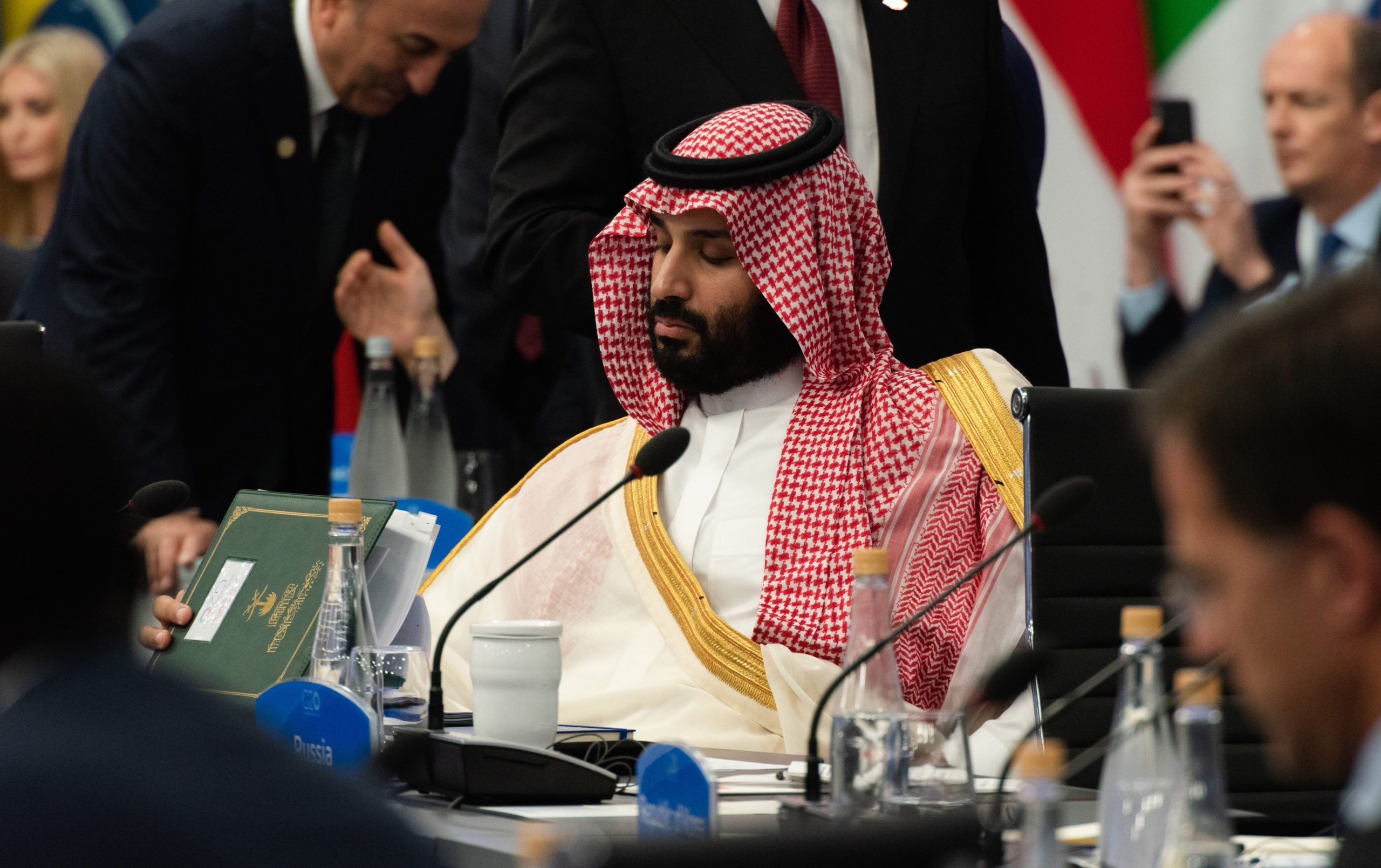The government of Saudi Arabia has gone to extraordinary lengths to silence its critics, including brutally murdering journalist and U.S. resident Jamal Khashoggi in 2018. Now the Saudi monarchy is hoping to silence its most powerful critic yet: the U.S. Senate.
Tuesday afternoon, fireworks flew in a Senate committee room as consultants for the Saudi Public Investment Fund (PIF) — Boston Consulting Group, Teneo, McKinsey & Company, and M. Klein — were called to explain why they and the PIF had done remarkably little to comply with a Senate inquiry into PIF’s influence efforts in the U.S.
The hearing got heated almost as quickly as it began with Sen. Richard Blumenthal (D-Conn.), chairman of the Permanent Subcommittee on Investigations that was holding the hearing, exclaiming that, “It’s outrageous the government of Saudi Arabia is threatening members of your companies with jail time if you provide the documents this Subcommittee has requested.”
The Ranking Member of the subcommittee, Sen. Ron Johnson (R-Wis.) also expressed disdain for the lack of transparency afforded by the PIF. “I have no sympathy for Saudi Arabia’s claims of sovereign immunity,” he said. “Any foreign entity wanting to do business in the U.S. must abide by U.S. laws.”
Sens. Blumenthal and Johnson’s ire with the witnesses stems from these firms’ and PIF’s stubborn refusal to comply with the subcommittee’s investigation of PIF’s influence activities in the U.S., most notably PIF’s bid to effectively take over the international game of golf via the proposed merger of the Saudi-backed LIV Golf tour with the U.S.-based PGA Tour and the DP World Tour.
Last Monday, the two senators sent PIF a sternly worded letter, noting that PIF has even filed legal actions against each of the PIF consultants in Saudi court seeking to prevent the firms from giving the subcommittee any information that isn't approved by the Saudi government, thus essentially trying to censor the congressional investigation.
At the hearing, the witnesses expressed the chilling impact this has had, with one of the firm’s representatives noting its employees could face, "as much as 20 years imprisonment as well as monetary fines” in Saudi Arabia, if they comply with the subcommittee’s subpoena.
Silencing critics is nothing new for a Saudi regime that jails activists at home and murders them abroad. But, in this case, it’s not a single Saudi critic that finds itself under attack; it’s U.S. law. As Sen. Blumenthal made clear repeatedly at the hearing and in a letter sent to his colleagues on the subcommittee last Thursday, “The PIF Consultants’ refusal to comply with Congressional oversight at the behest of a foreign government presents an existential risk to U.S. law.”
As Blumenthal further elaborated in his letter, if these firms ignore the subcommittee’s subpoenas with impunity, it could create a dangerous precedent — “that American companies can shield commercial interactions with foreign governments that are directed towards the United States from oversight simply by choosing to have their contracts governed by foreign law.” At the hearing, Blumenthal made clear that this was not acceptable, adding, “We are not going to sell our legal system to the highest bidder or the biggest bully.”
Some of the witnesses at the hearing also faced tough questions about their firms’ compliance with another foreign influence law — the Foreign Agents Registration Act. There are currently five firms registered under FARA as agents of the Saudi Public Investment fund — USSA International, RF Binder Partners, Brownstein, Hyatt, Farber, Schreck, Akin, Gump and Teneo.
Notably, this list does not include the Boston Consulting Group, McKinsey & Company, or M. Klein, whose representatives also testified at the hearing regarding work they had done for PIF. Asked to explain this, the witnesses argued they had sought outside counsel and were told that nothing they were doing required FARA registration. In that case, Blumenthal retorted, “One of the findings we’re seeing from this inquiry is that FARA needs to be strengthened.”
While the Saudi PIF and its consultants have repeatedly tried to dismiss PIF’s activities as being little more than economic investments — and thus not requiring FARA registration — there’s ample evidence the kingdom’s use of PIF and its larger sportswashing operations involve much more than money.
PGA Tour officials, testifying before this same subcommittee last July, explained that the PIF-backed LIV Golf is “an irrational threat [to the PGA Tour] that’s not concerned with a return on investment or true growth of the game.” As I mentioned when I testified before the same subcommittee in September, and based on my extensive research into Saudi influence in the U.S., PIF’s actions are "part of the Kingdom’s much larger lobbying, public relations, and broader influence operation in the U.S."
Just two weeks ago, women’s tennis titans Chris Evert and Martina Navratalova raised alarms about Saudi Arabia’s hosting of the Women’s Tennis Association Finals given the country’s human rights record. The pair questioned “whether staging a Saudi crown-jewel tournament would involve players in an act of sportswashing merely for the sake of a cash influx.”
What’s perhaps most concerning about Saudi sportswashing and the kingdom’s unprecedented attempts to stymie a congressional inquiry is that they’re happening at the same time as the Biden administration is reportedly promoting a security pact with Riyadh as part of a larger agreement for Saudi Arabia to normalize relations with Israel.
In short, the Biden administration is considering asking U.S. troops to fight — and possibly even die — for a monarchy which, at the same time, is actively undermining U.S. law. Needless to say, this sends a deeply troubling message to America’s enemies and even its so-called “friends,” like Saudi Arabia, abroad: You can meddle in our domestic politics, and not only will you do so with impunity, but you can also be rewarded with U.S. military support.














